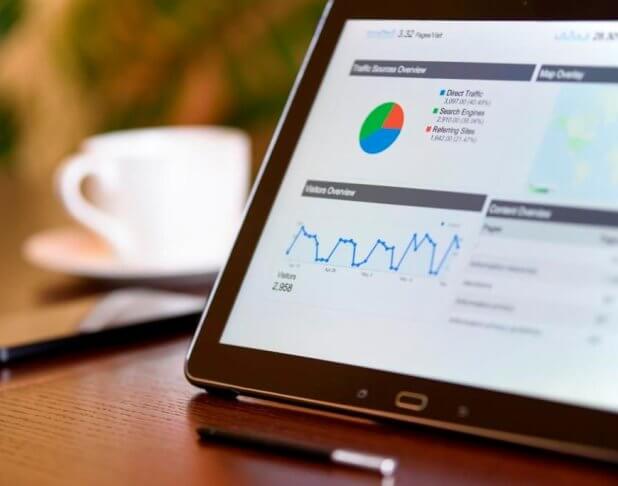Most websites exist to turn a profit, no matter what other secondary goals they have; even charitable and organization pages need to bring in money through donations. But choosing a pretty design and making a good offer sometimes isn’t enough to guarantee that your visitors will convert.
According to KissMetrics, up to 96 percent of your visitors won’t be ready to buy — so what can you do to convince the rest and move the majority closer to a buying decision?
You may be able to generate a healthy stream of traffic through your marketing and advertising methods, but if those visitors aren’t buying from you, you won’t be able to keep your business afloat.
That begs the question, how can you maximize the profitability of your website, specifically?
There are dozens of strategies you can use to increase the profitability of your website. These are 10 of the most effective:
1. Clearly describe your product’s benefits.
Most marketers make the mistake of describing their product too literally; they tell you facts about the product and hype those facts up as a way to increase sales. However, it’s psychologically more powerful to describe the benefits of the product, rather than the product itself; this makes your description more experiential in nature, giving people a mental foothold to imagine using the product.
For example, if you’re describing a refrigerator, don’t describe it as “capable of faster cooling.” Instead, spin it as “cools food faster to reduce bacteria growth.” As Eddie Nuvakhov, CEO and producer of LNC Productions, a company that specializes in marketing videos explains, “You need to show people how your product is going to change their lives for the better, and not just what the product is, if you want to make a convincing argument for its purchase.
“As a producer, it’s my responsibility to ensure we maximize the effectiveness of the video campaign while minimizing the cost to our clients.” This simple change instantly makes your product — or offer — more appealing.
2. Tell customers how to use your product.
According to Michael Lykke Aagaard of Unbounce, “Conversion-rate optimization really isn’t about optimizing web pages — it’s about optimizing decisions — and the page itself is a means to an end but not an end itself.” You can’t rely on the function of your product to make itself evident. Tell your customers how they can use your product in their daily lives or in a practical context.
For example, if you’re selling an ebook on how to build an ecommerce business from scratch, don’t describe it as “containing templates you can use to plan your business.” Be more specific, and instruct customers with something like, “Complete one page per day, and you’ll have a blueprint for your business in less than a month.” If you have a more tangible product, consider reducing the instructions for its use to a series of simple steps, which you can then promote.
3. Offer reviews and testimonials.
By some counts, more than 88 percent of consumers trust online reviews as much as they would trust a personal recommendation from a friend or family member. Notes David Levy, COO and director of LNC Productions, “Testimonials open the door and invite your audience into the customer’s life. As a director, I make sure your audience can relate to the problem the person in the testimonial experienced, before using your product or service. If the audience relates to the problem they’ll also connect with the reviewer’s positive experience during and after using your product/service as well, thus effectively communicating your brand’s message.”
Collect reviews and testimonials any way you can, and present them throughout the site. It’s better if you can identify the source, such as by listing a personal reviewer from a major brand or taking video reviews from customers; but any reviews and testimonials can be helpful.
4. Get closer to customers with more targeted messaging.
If you want your messaging to be more powerful, more relevant and more persuasive, there are two things you need to do. First, make sure you’re targeting a specific audience; and second, cater your messaging to that audience. Choosing a niche that’s specifically defined and profitable can be a challenge, but once you’ve done it, all of your brand’s messaging will be more powerful.
Many new marketers make the mistake of speaking to as broad of an audience as possible, but if you narrow your focus with more appropriate word choices (such as a larger or smaller vocabulary) and an appropriate tone (more formal or more casual), you’ll amplify the effectiveness of your website.
5. Visually demonstrate your product.
In the words of pricing strategist Tim Williams, “Clients don’t care about the labor pains; they want to see the baby.” Make sure your customers can actually see what your product is and how it works. Visual content marketing is seeing an explosive burst in popularity due to increasing demand; since sight is our strongest sense, we react more strongly to visual forms of information and content.
If you have a physical product, show a short video of a person using it in a practical setting. If you sell software, offer a demo of your platform. Get your users’ eyes on what you’re selling, and show off its advantages.
6. Offer communication options.
In an experiment by KissMetrics, twin landing pages were established; one of these featured a phone number while the other did not. The landing page with a phone number was responsible for 54 percent of the total conversions collected, indicating a significant boost from the presence of a phone number alone. Include more communication options for your customers, and you’ll earn more trust (plus get a chance to talk to any visitors who are unsure about their purchases).
7. Give your visitors something valuable.
If you want your visitors to stick around and think more highly of your brand, you’ll need to give them something of value. This doesn’t have to be something tangibly valuable; for example, you could simply offer downloadable resources or informative content on how to make a buying decision. All of your visitors should come to your site and walk away with something new, even if it’s just new information.
8. Make it easier to convert.
If you want your customers to convert, you need to make it easier for them. Web visitors aren’t patient (for the most part), and will flee at the first sign of difficulty, even if that means just a few extra seconds to find what they’re looking for.
According to Stoney deGeyter of Pole Position Marketing, “When too many options are presented, visitors typically will just click on one of the first few links available, hoping it’s what they need. If not, guess what? They split.” Make it easier for your visitors to convert by offering calls-to-action everywhere, reducing the amount of information you request, and ensuring easy, streamlined functionality across all browsers and devices.
9. Reassure your customers with guarantees and mitigated risks.
According to ConversionXL, simply adding some kind of guarantee to your offer can improve your conversion rates by 7.6 percent or more. Hesitant visitors may refuse to follow through with a purchase due only to their uncertainty; and a guarantee (or even a risk-free trial) will incentivize them to follow through, since the risks of doing so will be mitigated.
10. Consider alternative revenue streams.
Of course, if you’re still having trouble generating profit from your site, you could consider alternative means of generating revenue. For example, you could start selling advertising space on your blog, building affiliate links to earn commissions from sales you assist, or selling ebooks and other forms of “premium” content.
Kill five birds with one stone.
If you’re looking for an easy way to incorporate the first five of these methods into your site at the same time, consider creating an explainer video. Explainer videos are concise video guides on what your brand is, what you’re offering and why it’s valuable to your users. Usually just a few minutes in length, such videos give you a simple way to tell your customers everything they need to know to make a purchase.
These videos aren’t terribly expensive or intensive to create, and once they’re made, you can use them in a number of different marketing campaigns — not just as a staple feature of your website. Create an explainer video for your brand, hitting all the above points, and watch as your conversion rates begin to grow.



